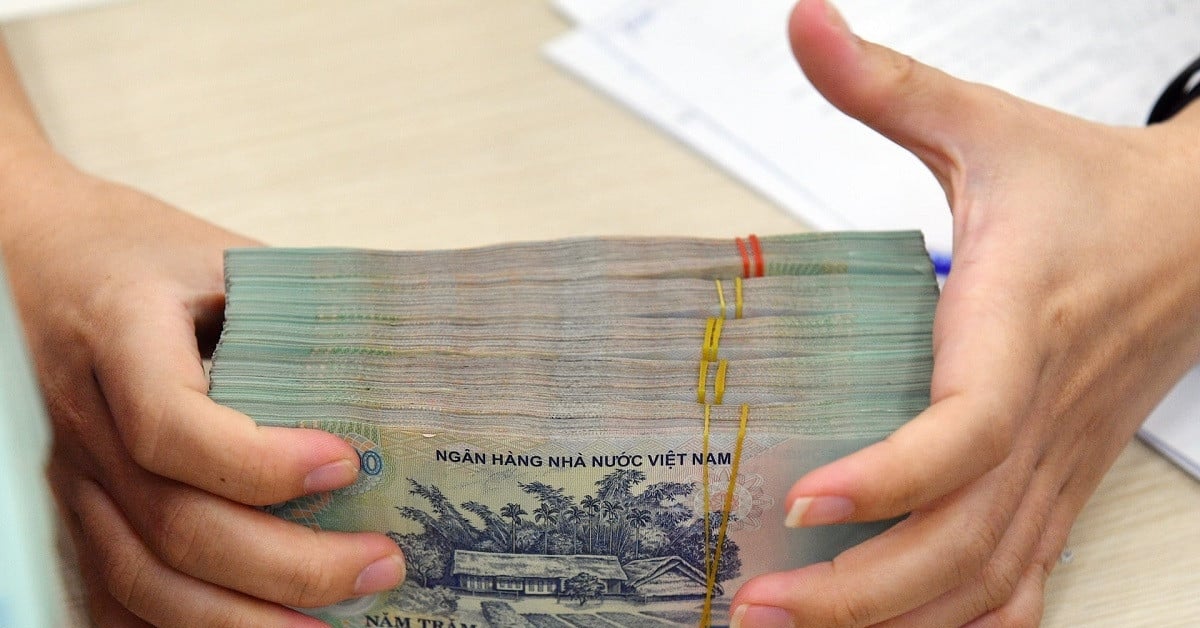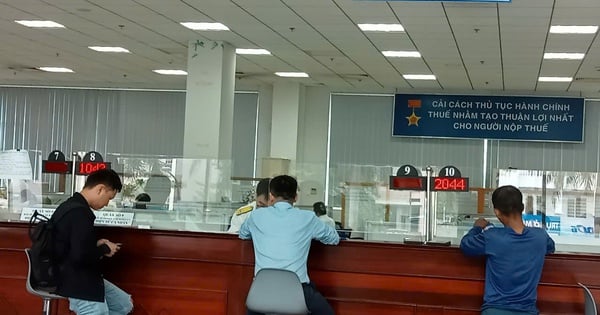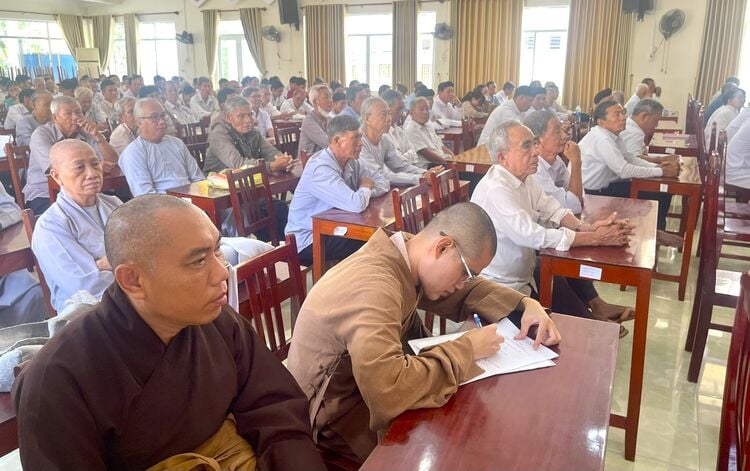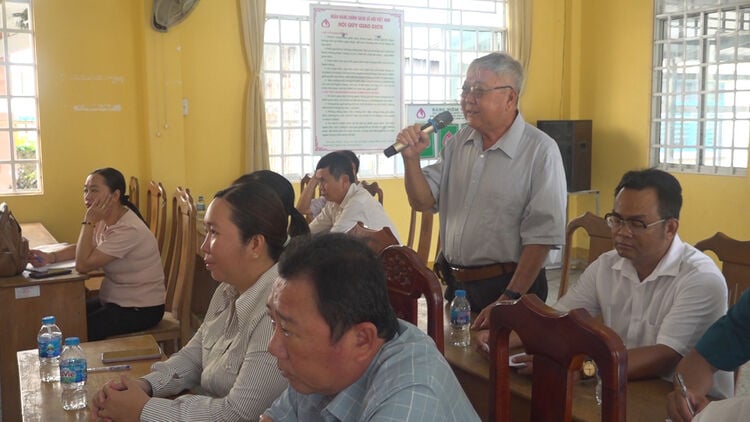My parents and brother died suddenly in a traffic accident and did not leave a will. Now my family only has me and my youngest brother. My two sisters and I inherited the assets left by our parents including: house, car, stocks, capital contribution in a small business. My brother was not married yet, when he passed away he left an apartment.
So how do my two sisters inherit the above assets? Which assets are subject to personal income tax? What are the procedures for receiving inherited assets?
Reader Bich Hong.
Consulting attorney
Lawyer Tran Van Gioi (Ho Chi Minh City Bar Association) advised that according to Article 612 of the Civil Code, inheritance is regulated as follows: "Inheritance includes the deceased's personal property and the deceased's share of property in common with others."
The division of inheritance is done in one of two ways: by will or by law. Since your parents and brother did not leave a will, the property will be divided according to the law.

Attorney Tran Van Gioi
According to Article 651 of the Civil Code, legal heirs are determined in the following order:
First order of heirs includes: wife, husband, biological parents, adoptive parents, biological children, and adopted children of the deceased.
Second-order heirs include: paternal grandparents, maternal grandparents, siblings of the deceased; grandchildren of the deceased whose deceased is the paternal grandfather, paternal grandmother, maternal grandfather, maternal grandmother...
Heirs of the same rank shall inherit equal shares of the inheritance. Heirs of the next rank shall inherit only if there is no one in the previous rank who has died, is not entitled to inherit, is disinherited, or refuses to receive the inheritance.
According to the above regulations, you and your sister are the first-line heirs of your parents, and the second-line heirs of your brother.
Your parents' inheritance will be divided equally among the first-order heirs (your parents, adoptive parents, your parents' biological children, and their adopted children). If these heirs are no longer alive at the time of inheritance, the entire inheritance will be divided between your two sisters.
Similarly, since your brother is unmarried and has no children, the inheritance will be divided equally among the second-degree heirs. If the paternal and maternal grandparents Friend If he is no longer alive at the time of inheritance, his brother's apartment will be divided between you and your sister.
About personal income tax
Pursuant to Point d, Clause 1, Article 3 of Circular No. 111/2013 of the Ministry of Finance, income from inheritance is exempt from tax as follows:
"Income from receiving inheritance or gifts of real estate (including houses and future construction works) between: husband and wife; biological parents and biological children; adoptive parents and adopted children; parents-in-law and daughters-in-law; parents-in-law and sons-in-law; grandparents and grandchildren; siblings".
Therefore, according to lawyer Gioi, for the house of your parents and the apartment of your brother, you and your sister will be exempt from personal income tax. However, for cars, stocks, and capital contributions in enterprises, this tax is not exempted.
Inheritance procedures
The inheritance includes the house, so your sister should go to the notary public where the real estate is located to complete the inheritance declaration procedure through one of two forms: make a document declaring the inheritance or make a document agreeing to divide the inheritance. (Articles 57 and 58 of the Notary Law).
Then, you and your sister go to the land registration office where the real estate is located (for houses and apartments), the Traffic Police Department where you and your sister are permanent residents (for vehicles) and the business where your parents own shares or capital contributions, to complete the procedures for registering the transfer of ownership.
Source link


![[Photo] Hundred-year-old pine trees – an attractive destination for tourists in Gia Lai](https://vstatic.vietnam.vn/vietnam/resource/IMAGE/2025/4/17/25a0b7b629294f3f89350e263863d6a3)
![[Photo] Warm meeting between the two First Ladies of the Prime Ministers of Vietnam and Ethiopia with visually impaired students of Nguyen Dinh Chieu School](https://vstatic.vietnam.vn/vietnam/resource/IMAGE/2025/4/17/b1a43ba73eb94fea89034e458154f7ae)
![[Photo] President Luong Cuong receives Kenyan Defense Minister Soipan Tuya](https://vstatic.vietnam.vn/vietnam/resource/IMAGE/2025/4/17/0e7a5185e8144d73af91e67e03567f41)
![[Photo] President Luong Cuong receives Lao Prime Minister Sonexay Siphandone](https://vstatic.vietnam.vn/vietnam/resource/IMAGE/2025/4/17/337e313bae4b4961890fdf834d3fcdd5)
![[Photo] President Luong Cuong receives UN Deputy Secretary General Amina J.Mohammed](https://vstatic.vietnam.vn/vietnam/resource/IMAGE/2025/4/17/72781800ee294eeb8df59db53e80159f)
![[Photo] Prime Minister Pham Minh Chinh and Ethiopian Prime Minister visit Tran Quoc Pagoda](https://vstatic.vietnam.vn/vietnam/resource/IMAGE/2025/4/17/18ba6e1e73f94a618f5b5e9c1bd364a8)






















































![[Video] Viettel officially puts into operation the largest submarine optical cable line in Vietnam](https://vstatic.vietnam.vn/vietnam/resource/IMAGE/2025/4/17/f19008c6010c4a538cc422cb791ca0a1)




































Comment (0)